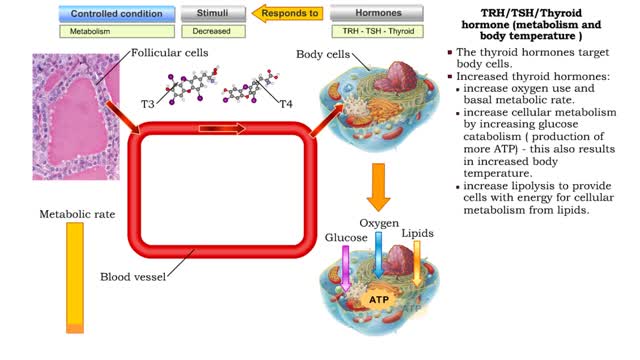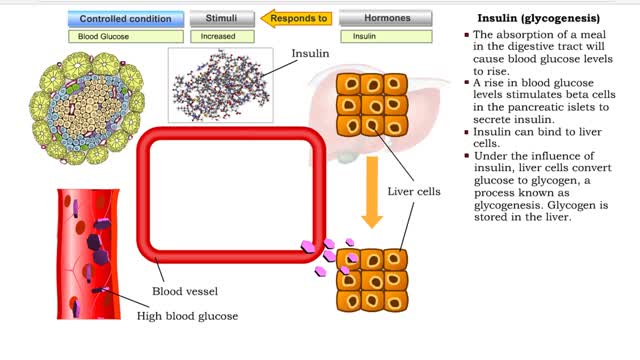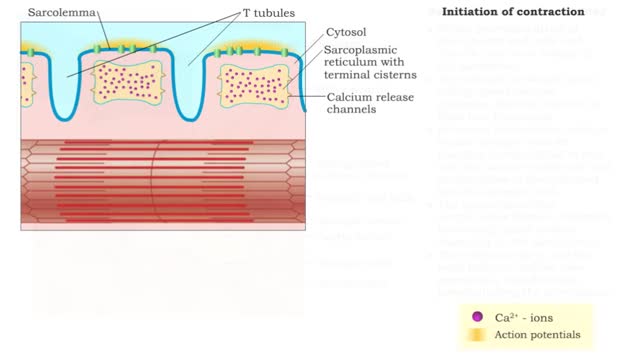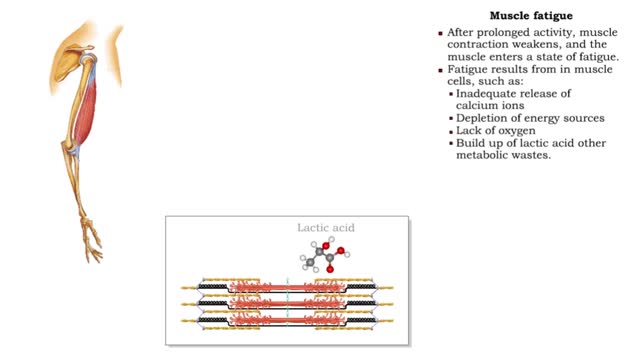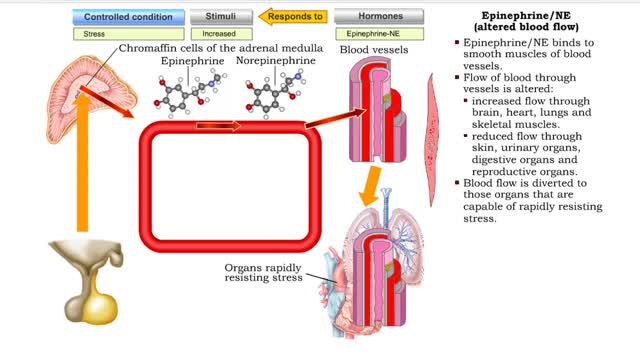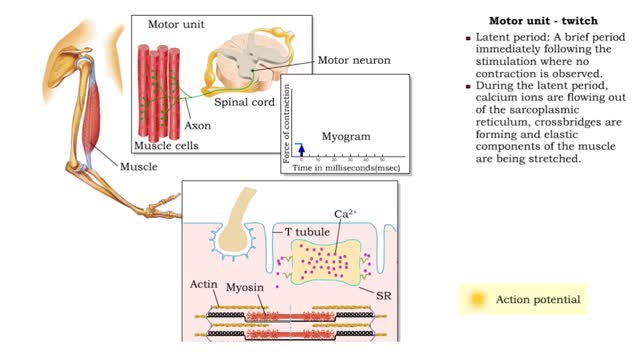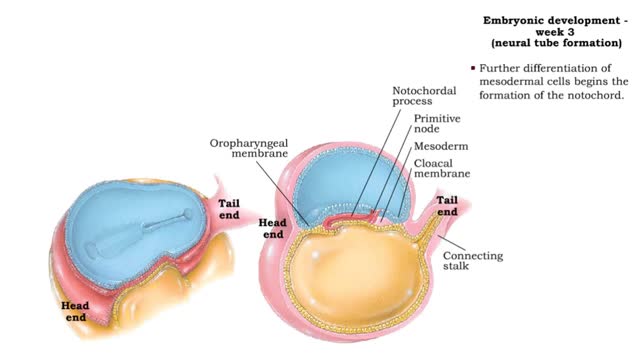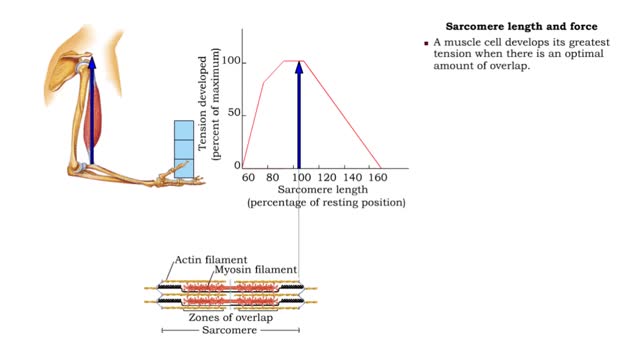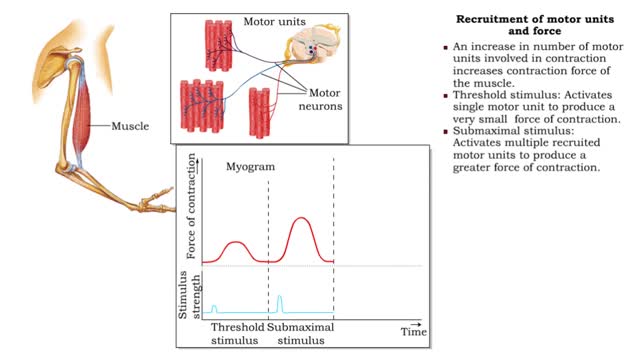Search Results
Results for: 'skeletal muscle cells'
By: HWC, Views: 10522
Thyroid hormone production • A decline in metabolic rate caused by increased metabolic need or physical exertion stimulates the production of thyrotropin hormone releasing (TRH) hormone from the cells of the hypothalamus. • Thyrotropin hormone releasing hormone targets the thyrotrophic ce...
Insulin (glucose uptake by body cells), glycogenesis and lipogenesis
By: HWC, Views: 11140
Insulin is the regulator that allows the sugar from the foods we eat (be it a piece of cake or a stick of celery) to enter our tissues and become part of the metabolic process. Insulin is made by the Islets of Langerhans, which are found in the pancreas of every person. As we previously mentio...
Nervous pathway to the Neuromuscular (NMJ)
By: HWC, Views: 11413
• A nervous impulse, also called an action potential, starts from the brain or spinal cord to signal skeletal muscle cell contraction. Action potentials continue along a motor neuron to the muscle cell. • The signal to contract must cross a synapse - the neuromuscular junction (NMJ) - betwe...
By: HWC, Views: 10637
• After prolonged activity, muscle contraction weakens, and the muscle enters a state of fatigue. • Fatigue results from in muscle cells, such as: • Inadequate release of calcium ions • Depletion of energy sources • Lack of oxygen • Build up of lactic acid other metabolic w...
Epinephrine/NE (heart rate, altered blood flow, glycogenolysis & bronchodilation)
By: HWC, Views: 10782
• Stressors trigger increased sympathetic stimulation from the hypothalamus to the chromaffin cells of the adrenal medulla. • This causes the immediate release of epinephrine and norepinephrine (NE). • Epinephrine/NE binds to the cardiac muscles of the heart. • Cardiac muscle cells ...
Muscle Twitch and Muscle Tension - Motor unit size and force
By: HWC, Views: 11130
• A motor unit is a group of muscle cells controlled by a single neuron. • A stimulus of sufficient intensity will cause all the cells in the motor unit to contract. • A single contraction, caused by a single action potential, is called a muscle twitch. • Latent period: A brief per...
Embryonic development - Week 3
By: HWC, Views: 10993
Week 3 (gastrulation) • Three primary germ layers are formed which provide cells for organ formation in the following months. • These germ cell layers are formed by a process known as gastrulation, which involves rearranging epiblast cells. • As cells from the epiblast migrate, a fain...
Factors that influence muscle tension - Sarcomere length and force, understretched and overstretched
By: HWC, Views: 11002
• Muscle tension generated through the contraction of muscle cells provides the force necessary for the muscular system to function. • The amount of tension produced depends on several factors: • Sarcomere length Frequency of stimulation • Motor unit size • Recruitment of moto...
Frequency of stimulation and force (Recruitment of motor units and force)
By: HWC, Views: 11215
• Muscle tension depends on the frequency of stimulation. • Muscle twitch: First stimulus. • Wave summation: When a second stimulus excites a partially relaxed muscle, producing a stronger contraction. • Unfused tetanus: Successive stimulations at the same frequency, producing a se...
Advertisement



